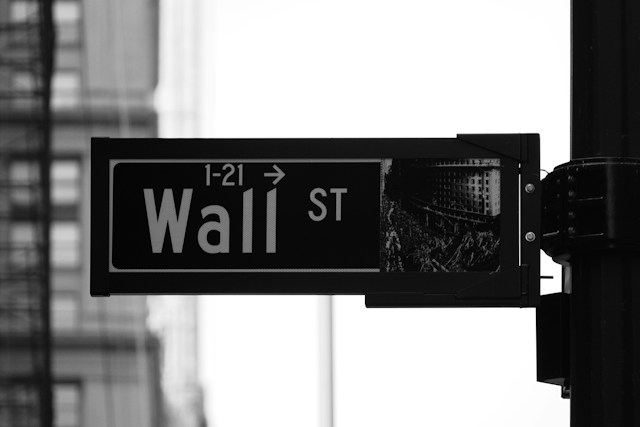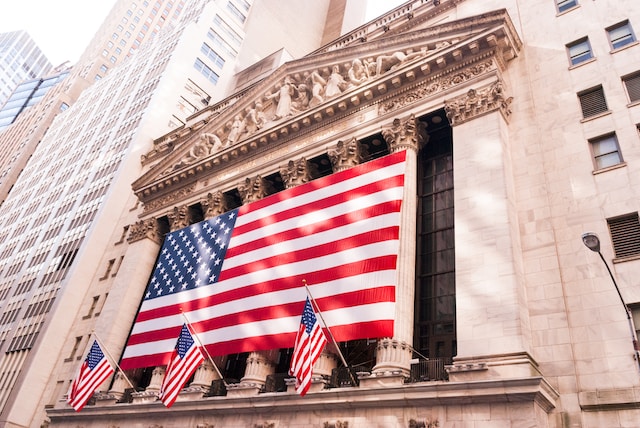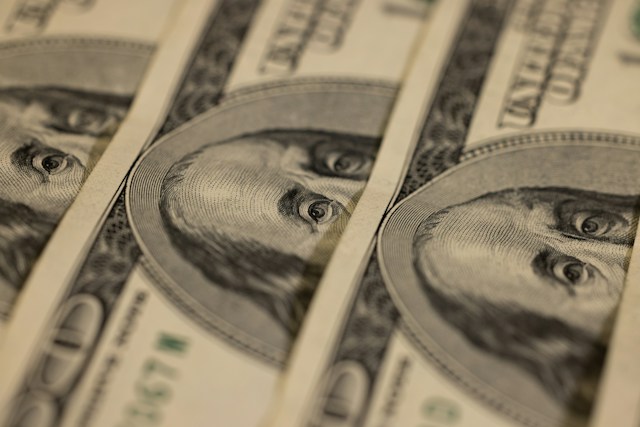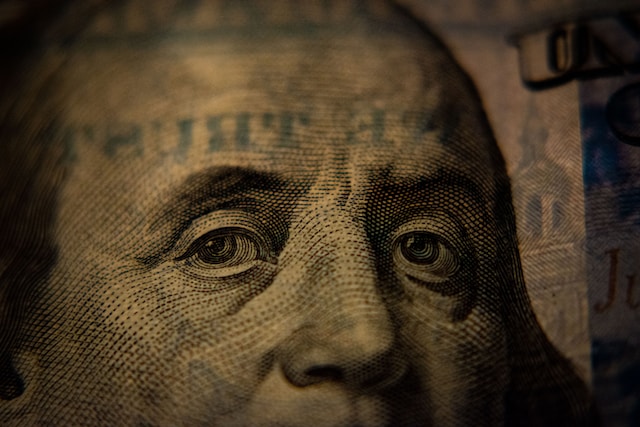“Congress has been spending more money on you but has been unwilling to raise taxes. As a result, it has imposed inflation as a tax, that’s one tax you don’t have to vote for, but you have to pay.”
That’s a quote from Milton Friedman, the famous conservative economist, talking about the role the government can play in inflation.
In my previous article, Inflated Fed-Head, I talked about why the economy is the way it is and how the actions of the government and private businesses left the country to pay for these actions with inflation.
But the country is also paying in different ways, which allow the government and the private sector to participate in what seems like rogue economics.
To me, rogue economics is when certain economic actors “go rogue.” They act in unexpected ways and go off script without regard to the risks of those actions.
And when both the government and the private sector participate in rogue economics simultaneously, we are left with significant problems like moral hazard and the breakdown of the fundamentals of capitalism.
So, let’s look at how both the government and the private sector participate in this type of rogue economics and how it can lead to moral hazard, the disintegration of capitalism, and further economic problems due to the financial system’s susceptibility.

Rogue Economics and the Private Sector
First off, let’s define moral hazard. Moral hazard is when an actor is more inclined to take risks because it does not have to accept full responsibility for the consequences of those risks.
It’s like placing a bet without having to pay up if you lose.
But how does this happen in our economy? And why does it become a macroeconomic issue?
It starts with an initial actor within the economy taking excessive risks and how they avoid taking responsibility for those risks.
This has been happening in one of two ways, starting with the private sector.
They decide to take on the excessive risk because, one, they know the financial loss will fall to some other party, or two, they know the government will bail them out.
The first, for example, directly contributed to the Great Recession, and the second directly resulted from the response to the recession and has been the playbook for handling the other crises since.
The handling of mortgage-backed securities before the Great Recession is a great example of this first type of rogue economics and moral hazard.
Mortgage-backed securities are financial assets that are created out of many different mortgages pooled together. Investors can then invest in them like they do other financial assets.
This became problematic before the Great Recession when financial institutions started creating mortgage-back securities with subprime mortgages, mortgages given to people with poor credit histories who didn’t necessarily have the money to pay back those mortgages.
Investors were investing so heavily in mortgage-back securities, and the financial institutions wanted more profit, so lenders pulled back their usual standards of granting mortgages, which turned into subprime mortgages.
And since these subprime mortgage lenders eventually sold off the mortgages, like selling to mortgage pools, they didn’t have to worry about the associated risks, like borrowers being unable to pay for their mortgages.
This is what rogue economics looks like in the private sector. A financial institution was going off script and doing something it shouldn’t, creating subprime mortgages for its profit without regard to the overall risk.
This, among other factors, led to the economy’s collapse in 2008. And it is amazing to step back and think about how a few rogue decisions by financial actors can bring down the global economy.
But that happens when institutions are not regulated and are so big that they can affect the entire economy, which is why moral hazard and rogue economics can be dangerous.
This is where we go next because while the private sector may start the fire of rogue economics, the government has been adding fuel for years.

Rogue Economics and the Government
“If they’re too big to fail, they’re too big.”
That quote is from Alan Greenspan, former chairman of the Federal Reserve, commenting on large corporations in 2009 and a significant issue many have with large corporations, especially financial ones.
But why are they too big to fail?
Because when institutions, financial institutions in particular, are so big and connected, their failure affects the entire economy.
And when they fail or have a downturn, the government must step in to prevent the entire economy from collapsing. The government has no choice but to bail them out.
It is a significant vulnerability in our economic system and feeds rogue economics and moral hazard. If these big institutions know they are immortal, they can take whatever risk they want.
It’s moral hazard to a tee. The financial institutions take whatever risk they want; if it goes well, they reap all the profits, and if it goes wrong, the government will bail them out.
Some might say this is an old problem, and the regulations and reforms after the Great Recession, like the Dodd–Frank Wall Street Reform and Consumer Protection Act, took care of many of these problems.
And that is certainly true, to a point. But there are three reasons why these “too big to fail” institutions still pose a big problem.
Dodd-Frank created government organizations, like the Financial Stability Oversight Council, able to impose regulations and break up the institutions into smaller ones if necessary.
However, there are still lists of Systemically Important Financial Institutions that were created by the Financial Stability Board, an intergovernmental body designed to help monitor global finances, which lists all the financial institutions globally whose failures could cause a financial crisis.
Banks like JP Morgan Chase and Bank of America are on the Global Systemically Important Banks list, meaning they are still deemed “too big to fail.”
And so, even with Dodd-Frank, institutions are still extremely big and pose this potential risk.
We saw the effects of what happened when Silicon Valley Bank, a small regional bank, collapsed in early 2023.
The government once again had to get involved, and President Joe Biden had to address the situation and assure the American public that the banking system was safe.
Let’s let that sink in. Biden had to assure the country our entire banking system was safe because a small regional bank collapsed.
What would happen if Bank of America failed?
And that’s the point. And that’s why it and other major banks are still on the Global Systemically Important Banks list.
Its failure would still cause a major financial crisis.
But the regulations in Dodd-Frank should still be enough to prevent this type of collapse, right?
Well, the second reason may be even more concerning.
Dodd-Frank regulations have been reduced because of the Economic Growth, Regulatory Relief, and Consumer Protection Act of 2018, signed into law by Donald Trump.
Many people attribute the deregulation of the banking system in the 80s and 90s to the issues in the private sector mentioned earlier and to the Great Recession.
Donald Trump’s policy to deregulate again could have similar consequences.
However, some think the initial Dodd-Frank regulations were too much and cutting back was good and won’t have a similar effect.
I hope we don’t have to find out the truth the hard way.
Finally, and quite possibly most concerning of all, is that the government is now not only bailing out large financial institutions, but they are also bailing out other areas of corporate America.
Again, in my article, Inflated Fed-Head, I talked about the Federal Reserve’s role and how they bought up not only financial debt from financial institutions but also corporate debt from other businesses in response to the Covid-19 recession.
And this was the right thing to do given the Covid crisis.
But moving forward, this takes “too big to fail” to an even more concerning level. There is potential now for other big corporations not involved in the financial sector to get money from the government in downturns.
This is a risk to the foundation of capitalism if it continues to happen. If corporate America now gets to play the moral hazard game and participate in rogue economics, then what is the definition of capitalism in this country?
But it may be that the definition has already changed. The government has had to bail out businesses in a significant way twice since 2008. And again, it was the right thing to do and had to be done.
This means the real problem lies with the susceptibilities in our economic system.

Rouge Economics and the Future
The susceptibilities in our system have been creating the cycle of rogue economics.
The private sector goes rogue with risky behavior, an economic shock happens (in part because of the rogue nature of the private sector), and the government goes rogue to bail them out.
It is a cycle that can only be stopped with changes to why and how our economic system is susceptible.
And it starts with preventing the private sector from participating in rogue economics.
Regulation legislation, like Dodd-Frank, must be continued and maybe even updated.
It may be time to create new legislation that would improve the regulatory system and protect us from future crises like the Covid recession.
Maybe the solution is to give the Financial Stability Oversight Council more power or approval to break up large corporations now, so the economy is protected in the future.
Regardless, Congress and the Executive branch need to recognize our susceptibilities and try to find the solutions now.
They need to look at our current state of capitalism and our economic system and position it for overall health.
If they don’t, we will continue to be susceptible to rogue economics, its cycles, and similar economic crises.

I remember thinking it was odd that Biden had to address the Silicon Valley Bank situation. I thought the bank had to be much bigger than I originally thought but it wasn’t. I didn’t look into it further at the time but this helps explain it.